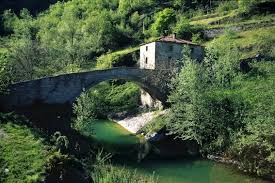This is exactly the path that the MADE IN-LAND project, which is being implemented in parts of Croatia and Italy, has followed from its very beginning. From the analysis and definition of the resource base, consulting with the private sector, to the implementation of pilot activities and the development of marketing strategy. The implementation of the activities of the MADE IN-LAND project included the horizontal cooperation of various private entities in the field of tourism, universities and the public sector.
The project aims to "overflow" tourist traffic from congested coastal destinations to the hinterland using innovative tools.
The final results of the project are as follows:
- Terra di Passo virtual eco-museum (Riccia Municipality)
- One-stop information center “House of Travelers” (Marche Region)
- Sense route of Istria heritage (AZZRI-Istria)
- MusLeo virtual museum (San Leo Municipality)
- Territorial brand "Quest for the fifth element" (ZADRA - Zadar County)
Through the realized activities, the offer of the hinterland of the aforementioned destinations was united and presented to the tourists. Developed products fall into several categories and integrate with each other:
- Web applications
- Audiovisual stories based on personalities from certain regions
- Interactive territory maps
- Booking tools
- Previously defined and "custom" tourist itineraries
- QR codes scanning
- Digital grading systems
- Different notification systems
Such a variety of tools that the MADE IN-LAND project has resulted in is an excellent basis for further inter-territorial cooperation. Analyzing market reactions to the use of different tools can provide results that project partners can share and place in their context. These experiences and knowledge from one region can be transferred to another region or country, and the results do not remain "captured" in only one city, county or country.
For example, such cooperation between partners from the Marche Region, Istria and Zadar County and the municipalities of Riccia and San Leo may answer some of the following questions:
- Do visitors react better to the offer of a destination in the hinterland if they are first introduced to the context and history of that destination through "storytelling"?
- Is there a greater demand for tourist itineraries that have already been defined or those that the visitor can define himself by choosing the various elements of that itinerary?
- How many visitors use QR codes and are they used more than the classic query to tour operators in the field?
- How much are booking tools used?
- How long do visitors remain using interactive territory maps and what do they think about their usefulness?
- Which tourist products do tourists prefer in relation to how the region is positioned - gastronomic, cultural or adventure?
After defining such main metrics that need to be monitored and whose results can be applied to other partner regions of the project, it is possible to monitor on the field how they move and finally try to see their results in the light of other partner projects.
All this indicates the benefit of the MADE IN-LAND project in the areas where the activities were carried out, but also its application in other areas and the possibility of upgrading in future projects.
ZADRA NOVA Agency is a partner in the MADE IN-LAND project, which brings together a total of nine partners from the Adriatic regions of Croatia and Italy, and its main goal is to protect and valorize untapped natural and cultural potentials of continental parts of partner regions. Project activities include local communities in the hinterland and coast in cooperation with which the territorial brand will be developed, and through joint marketing plans and IT tools tangible and intangible cultural and natural heritage will be promoted. The project with a total value of EUR 2,218,069.31 is being implemented from 1 January 2019 to 30 June 2022 within the Interreg Italy-Croatia Cross-border Cooperation Program 2014-2020.

